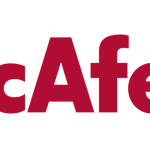- Industri: Software
- Number of terms: 9143
- Number of blossaries: 1
- Company Profile:
A self-extracting file decompresses part of itself when executed. Software authors and others often use this file type to transmit files and software via the Internet since compressed files conserve disk space and reduce download time. Some anti-virus products may not search self-extracting file components. To scan these components, you must first extract the files and then scan them.
Industry:Software
A scanner is a virus detection program that searches for viruses. Also see: anti-virus software, on-demand scanner, on-access scanner.
Industry:Software
A resident virus loads into memory and remains inactive until a trigger event. When the event occurs, the virus activates, either infecting a file or disk, or causing other consequences. All boot viruses are resident viruses and so are the most common file viruses.
Industry:Software
A rogue program is a term the media uses to denote any program intended to damage programs or data, or to breach a system's security. It includes Trojan horse programs, logic bombs, and viruses.
Industry:Software
It is an alternative format to the DOC file type supported by Microsoft Word. RTF files are ASCII text files and include embedded formatting commands. RTF files do not contain macros and cannot be infected with a macro virus. This makes RTF files a good document format for communicating with others via email. However, some macro viruses attempt to intercept saving a file as an RTF file and instead save it as a DOC file with an RTF extension. Users can catch this trick by first reading the file in a simple text editor like Notepad. DOC files will be nearly unreadable, while RTF files will be readable.
Industry:Software
A resident extension is a memory-resident portion of a program that remains active after the program ends. It essentially becomes an extension to the operating system. Many viruses install themselves as resident extensions.
Industry:Software
To reset is to restart a computer without turning it off. This is also called a warm boot.
Industry:Software
Replication is the process by which a virus makes copies of itself in order to carry out subsequent infections. Replication is one of major criteria separating viruses from other computer programs.
Industry:Software
A rename is an action by which a user or program assigns a new name to a file. Viruses may rename program files and take the name of the file so that running the program inadvertently runs the virus. Anti-virus programs may rename infected files, making them unusable until they are manually cleaned or deleted.
Industry:Software
A redirect is an action used by some viruses to point a command to a different location. Often this different location is the address of the virus and not the original file or application.
Industry:Software
